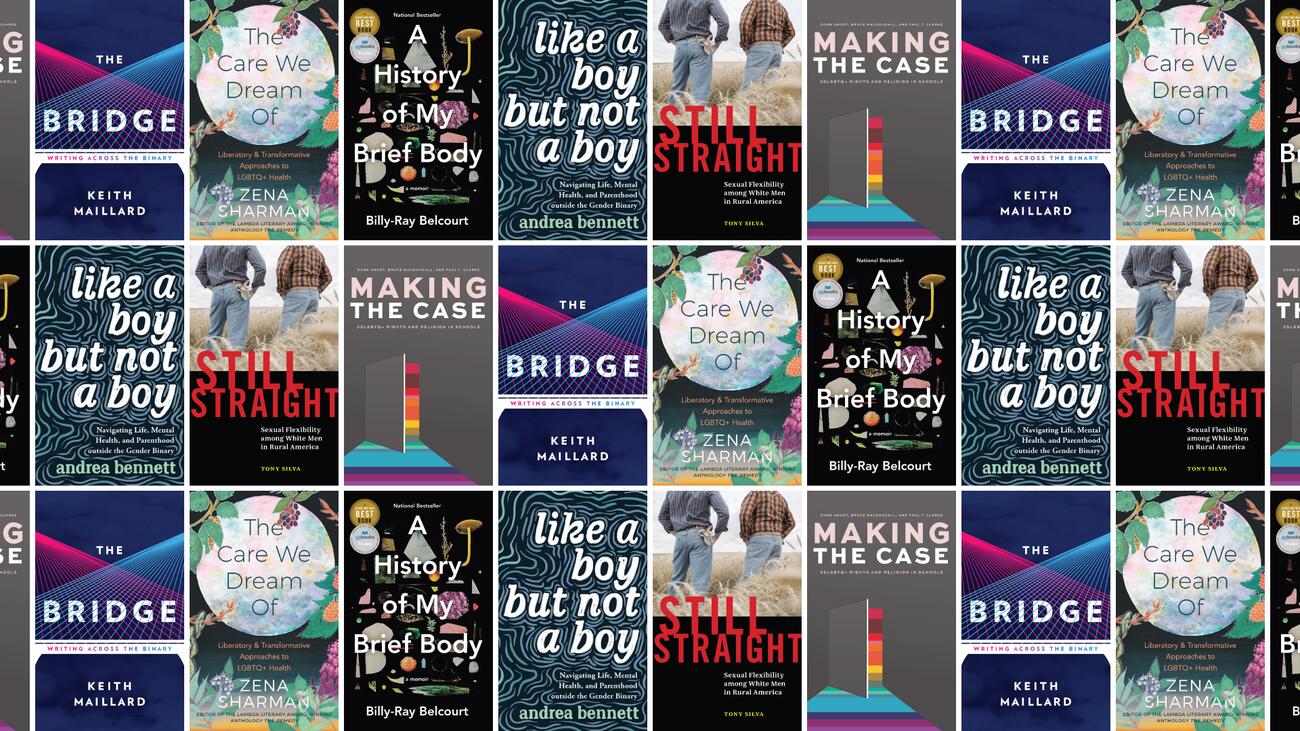
Pride on the page: 6 titles by UBC writers
Spanning literary non-fiction, memoir, essays, studies, and anthologies, this reading list will help to deepen and broaden your understanding of 2SLGBTQIA+ people and issues.
The rainbow colours, the out-there outfits, the pulsating dance beats — each year, Pride festivities transform locales into dazzling spaces. Yet beneath the exuberance and glittering appearances, gravitas informs these celebrations: there are the personal and public battles that 2SLGBTQIA+ people and allies have fought, won, and lost, and continue to struggle with.
To prepare for and deepen your appreciation of queer festivals held throughout the year (particulary during the summer), here are six recently published books, written by UBC faculty and alumni, to consider reading.
These titles include memoir, essays, academic studies, and anthologies, sometimes blending genres or even incorporating poetry and fiction. Most importantly, all of these entries convey a reassurance that’s ever-pertinent for queer people of all stripes: you are not alone.
Querying the past
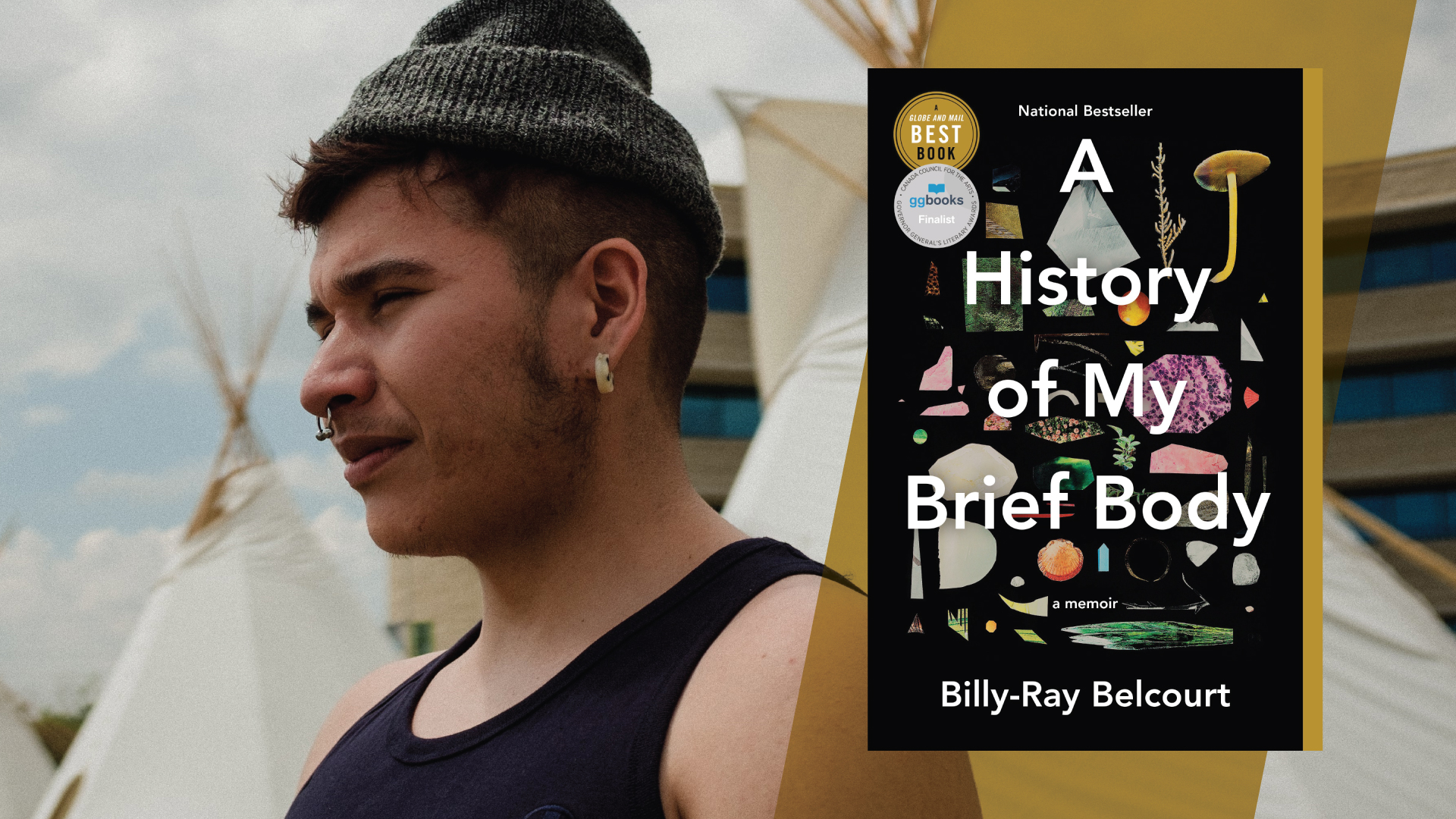
A History of My Brief Body
By Billy-Ray Belcourt
Penguin Random House Canada, 2021
In his debut memoir, UBC creative writing professor, author, and poet Billy-Ray Belcourt (he/him) of the Driftpile Cree Nation meditates upon his Indigeneity and queerness with frankness and a density of insight. Belcourt crafts prismatic prose with incisive word choices and unexpected turns of phrases that crackle with nervy truths.
Set amid the socio-political landscape of racism and genocide “on the shores of what is now improperly called Canada,” Belcourt charts the trajectory that his life has taken. From his childhood with his twin brother in Joussard, Alberta, to his forays beyond, he reflects upon love and loss, sexual encounters, and health care entwined with legacies of historical trauma, marginalization, and oppression.
“In our insistence against elimination, the logical holes in the fabric of a colonial world are revealed,” Belcourt writes. “Wherever light rushes in is an exit route.”
With chapters entitled “Loneliness in the Age of Grindr” and “Please Keep Loving: Reflections on Unlivability,” Belcourt fuses lyricism with academic theory to deliver statements carrying myriad meanings.
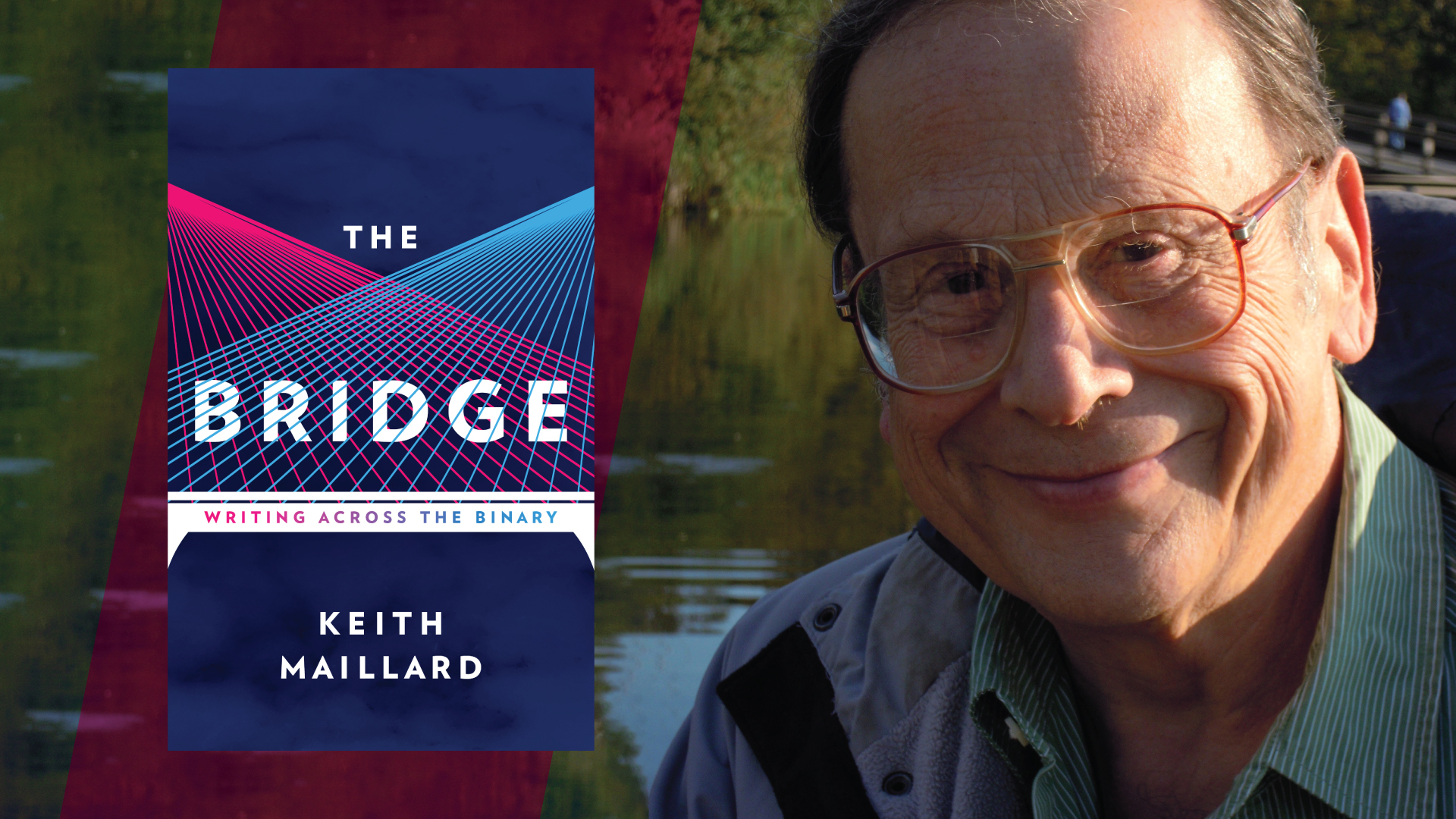
The Bridge: Writing Across the Binary
By Keith Maillard
Freehand Books, 2021
Haunted as a child by the question “Am I a boy or a girl?”, UBC creative writing professor and novelist Keith Maillard (he/him) surveys his lifelong struggles to reconcile his identity in this thematically driven memoir. Beginning with his childhood in Wheeling, West Virginia, in the 1940s, Maillard revisits his gender-related experiences, tracing them into adulthood and his literary career.
In the development of this book, he states that he couldn’t separate gender issues from his growth and work as an author. “Writing fiction is not about words on paper; it’s about creating a space where people can live,” Maillard explains.
His is a quiet but deftly articulated tale. It provides thoughtful historical context for readers to consider what life was like for queer people before widespread awareness, rights, and the internet existed. Maillard’s personal story can deepen appreciation of the numerous social and cultural shifts that have since taken place — and serves as a reminder not to take them for granted.
A spectrum of health
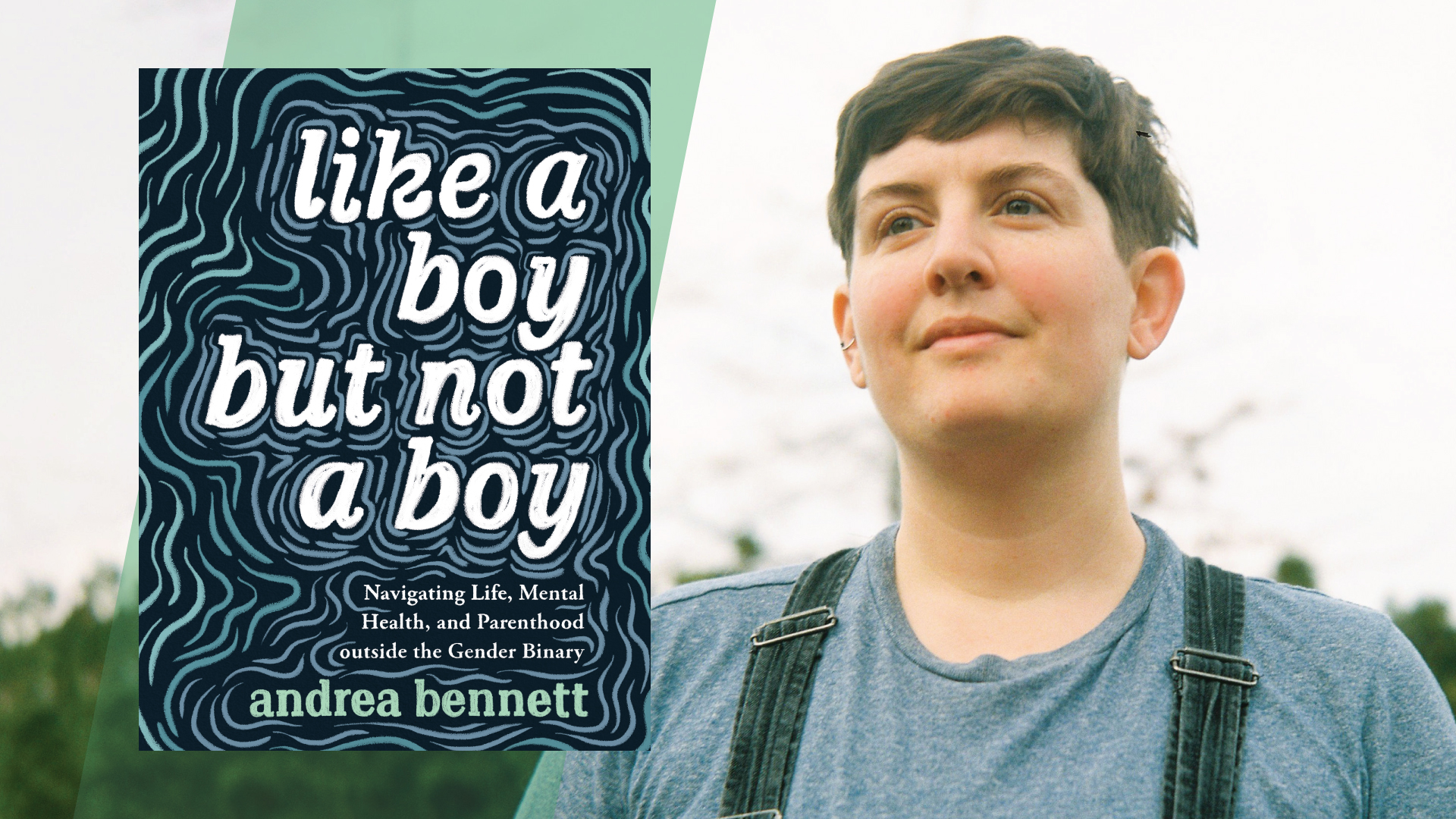
Like a Boy But Not a Boy: Navigating Life, Mental Health, and Parenthood Outside the Gender Binary
By andrea bennett
Arsenal Pulp Press, 2020
Using spare, clean writing with hallmarks of prose poetry, UBC Creative Writing graduate andrea bennett (MFA’12, they/them) interweaves candid observations about being non-binary with portraits of queer millennials who grew up in small-town Canada. bennett’s essays divulge intimate insights from their experiences identifying as a tomboy; wrestling with mortality anxieties; contending with working-class challenges, employment, and privilege; being diagnosed with bipolar II disorder; and experiencing pregnancy and parenting beyond traditional gender constructs.
Amid the diverse identities of the 16 individuals profiled by bennett — from 29-year-old bisexual Jane who grew up in Scarborough, Ontario, with immigrant parents from Hong Kong, to bigender and two-spirit rhean, born in 1980, who moved around B.C. — some commonalities emerge. There’s identity confusion and resolution, coming out, family and relationship complications, discrimination, and migrating from rural to urban settings. Despite the stark truths that the author confronts, the cumulative effect of interpolating all these experiences is a sense of community, connection, and, as bennett puts it, “a type of chorus.”
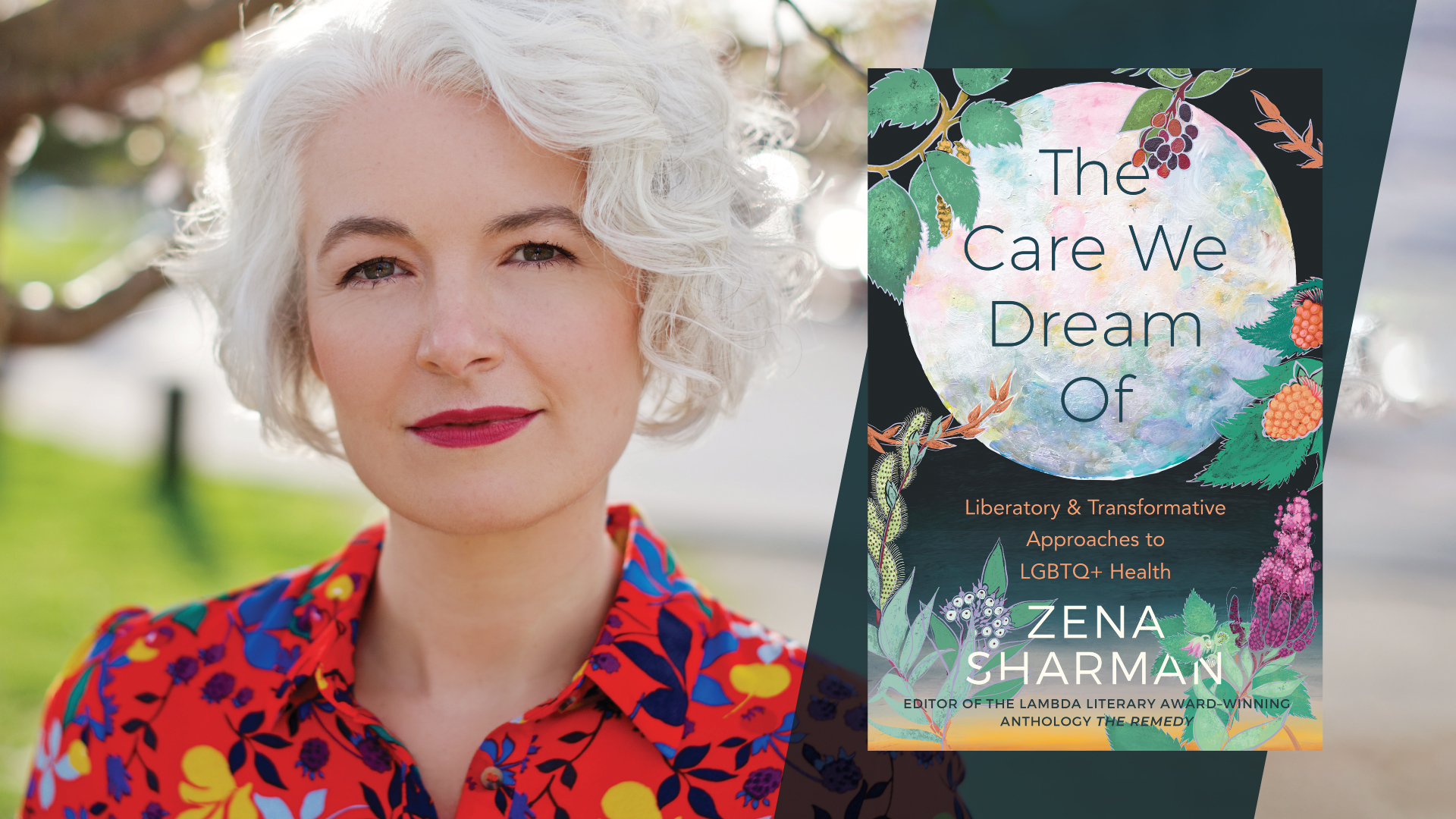
The Care We Dream Of: Liberatory and Transformative Approaches to LGBTQ+ Health
Edited by Zena Sharman
Arsenal Pulp Press, 2021
UBC alum, writer, and speaker Zena Sharman (PhD’10, she/her) explains that “many LGBTQ+ people associate accessing health care with feeling invisible or too visible or like nobody understands us, our bodies, our relationships, and who we call family.” Accordingly, Sharman's impetus for creating this collection of writing — spanning essays, interviews, storytelling, poetry, and even fiction — was asking: “What if queer and trans people loved going to the doctor?”
In response, Sharman intertwines her own pieces with diverse voices who address different facets of health and healing. For instance, therapeutic sex and relationship coach Dawn Serra explores the possibility of pleasure-centred health care while St. James Infirmary deputy director Anita “Durt” O’Shea discusses the first U.S. health clinic led by and for sex workers. Elsewhere, psychologist Sand C. Chang advocates queer- and trans-inclusive definitions of eating disorders while healing worker Carly Boyce provides experience-based lessons about suicide intervention. Other writers trace queer histories, such as visual artist and activist Sean Safia Wall who discusses intersex movements. Provocative and stimulating, blending both raw and refined elements, this book offers much-needed hope for the future.
Reconciling rights
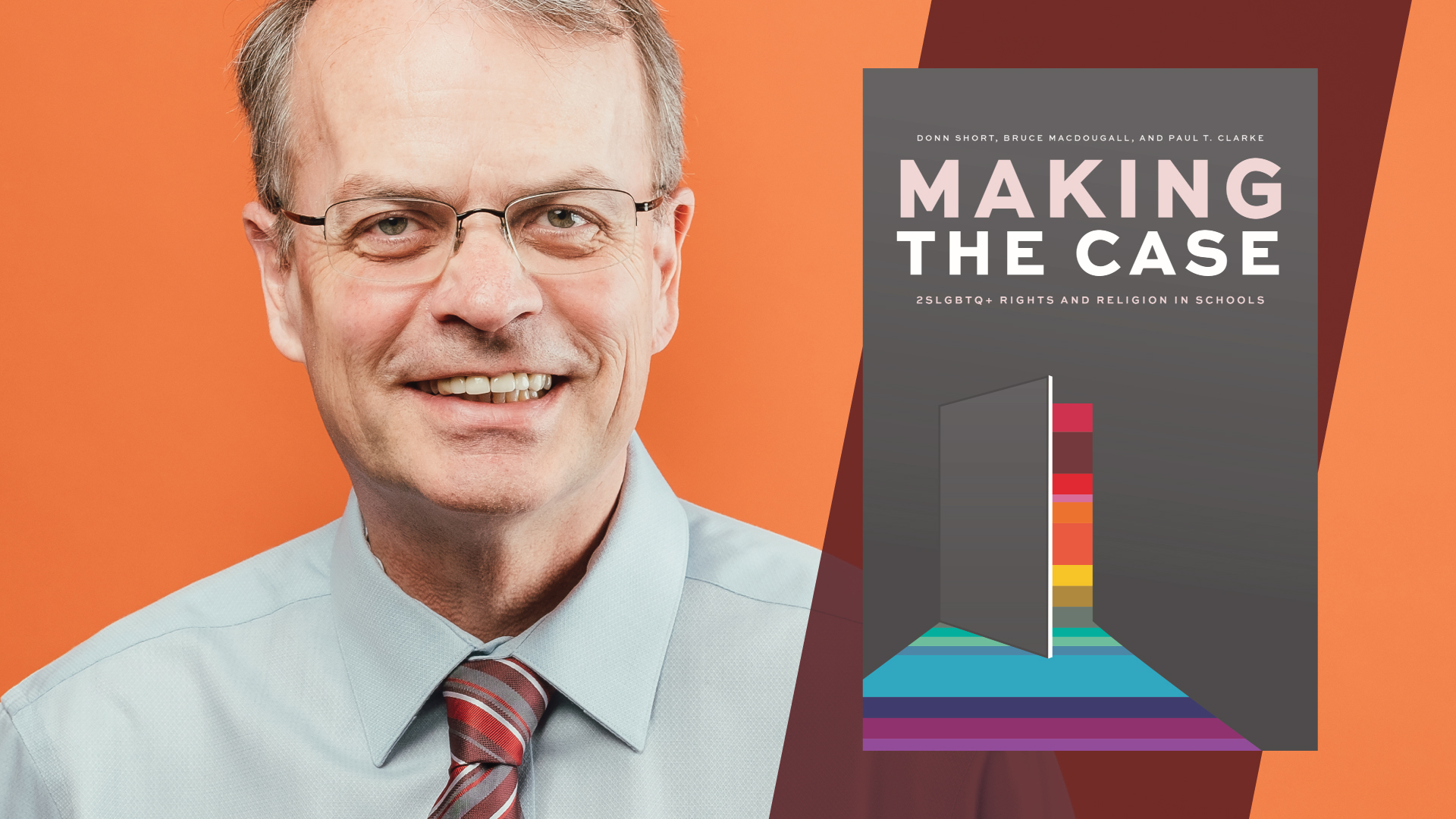
Making the Case: 2SLGBTQ+ Rights and Religion in Schools
By Donn Short, Bruce MacDougall, and Paul T. Clarke
UBC Press, Purich Books, 2021
In this comprehensive, reader-friendly volume, UBC law professor Bruce MacDougall (he/him), University of Manitoba law professor Donn Short, and University of Regina education professor Paul T. Clarke ask “How do we create safe and inclusive schools for 2SLGBTQ+ youth?”
Ranging from an eight-year-old transgender student barred from the girls’ washroom at her Manitoba elementary school to a 17-year-old gay student seeking to take his boyfriend to his Catholic secondary school prom in Ontario, the authors cite various legal cases to illustrate how Canadian legislation addresses “competing rights.” Ultimately, the authors assert that sexual orientation and gender identity (SOGI) rights can co-exist alongside religious freedom.
The book spans contentious issues in education, how anti-bullying initiatives led to 2SLGBTQIA+–supportive policies, the importance of recognizing how Canada is changing, and the need for hearing from everyone involved in these matters — especially children, “who have often been silenced or subsumed by the voices of others.”
Beyond the rainbow
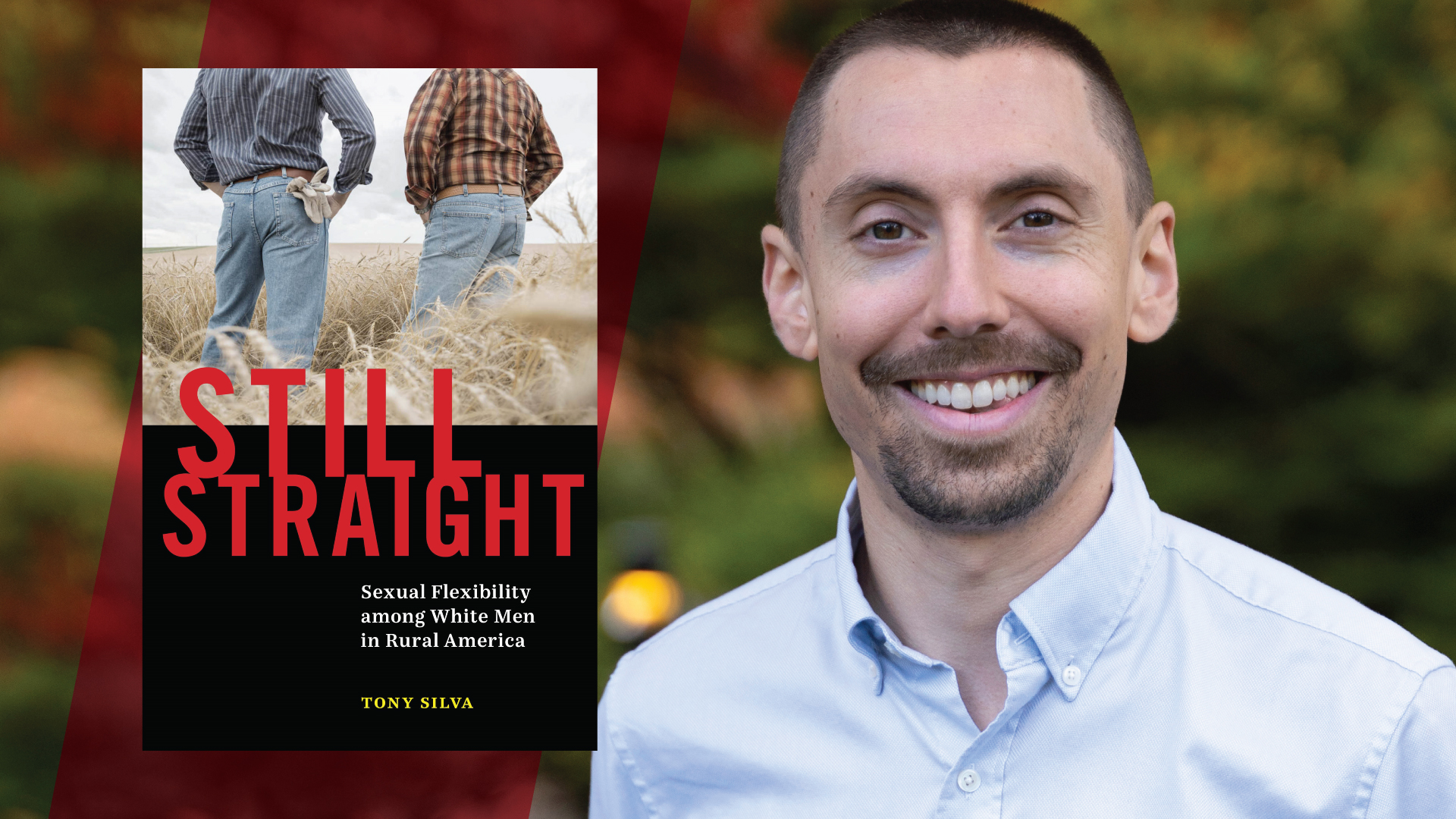
Still Straight: Sexual Flexibility among White Men in Rural America
By Tony Silva
New York University Press, 2021
While many may assume that straight men having sex with other men are actually closeted bisexual or gay males, UBC sociology professor Tony Silva (he/him) makes the case that among them are those who are, in fact, straight. Focusing on the largely understudied sexuality of men in rural locations, Silva interviewed 60 men in the USA’s Pacific Northwest, Northern California, Mountain West, and Midwest between 2014 and 2017.
The results may be eye-opening for those not already in the know — and maybe even for those who are. Many of these men (usually in sexless marriages with women) regard sex with men as a means for physical pleasure without attachment or cheating.
It’s ambiguous territory that Silva acknowledges is “messy,” “complicated,” and “often filled with irony and paradox.” Yet Silva’s overview of how attitudes towards sexuality and gender change over time and across social contexts underscores how concepts like “heterosexuality” and “masculinity” mask realities that are far more fluid than rigid definitions allow for.































